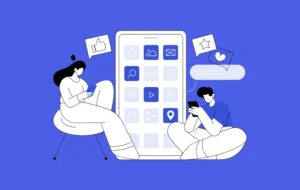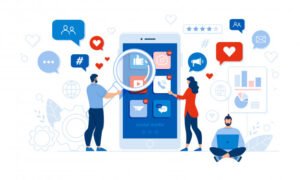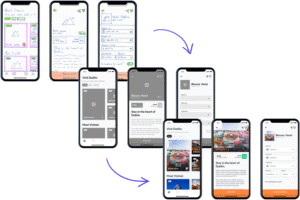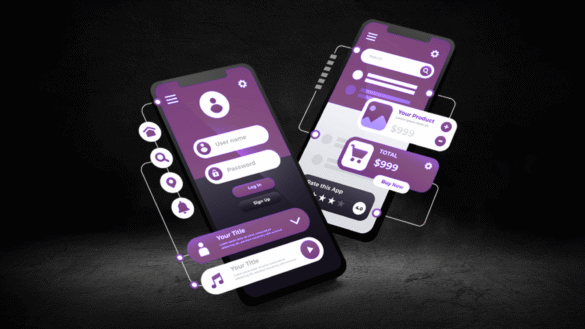In the modern era of digital convenience, events are no longer limited to printed invitations, paper agendas, and physical maps. Whether it’s a large-scale tech conference, a private wedding, or a city-wide festival, mobile apps have become essential to the event experience. They allow for smooth planning, real-time communication, and enriched interaction.
Behind every great event app is thoughtful design—built not just to look good but to function intuitively and efficiently.
What Is an Event Mobile App?
An event mobile app is a digital platform designed specifically to support and enhance events through features like scheduling, live updates, ticketing, navigation, attendee engagement, and more. These apps bring everything attendees need into the palm of their hands, streamlining communication between organizers and participants.
Why Event App Design Is Critical
A beautifully designed app is only effective if it’s also user-friendly. The design of an event app directly affects how attendees experience the event. It’s about crafting a smooth, intuitive flow where users can quickly access information, connect with others, and receive updates—all without confusion or delay.
Good design:
- Simplifies navigation and content access
- Promotes attendee engagement
- Increases app adoption and interaction
- Enhances brand consistency and professionalism
- Allows for real-time adjustments and updates
Poor design, on the other hand, can lead to frustrated users, missed sessions, and a drop in overall event satisfaction.
Key Features to Include in Your Event App Design

To build an event app that delivers real value, several features should be front and center in your design process:
Simple Navigation
A clean, logical structure is key. Users should be able to move through the app without needing a manual. Clear menus, search functions, and intuitive layouts make it easy to find anything from session times to location maps.
Personalized Agendas
Allow users to create a custom schedule from the event’s master agenda. With bookmarking and reminder options, users stay on top of sessions and activities they’re interested in.
Real-Time Updates
Push notifications and alerts keep attendees informed about changes in scheduling, speaker updates, or venue announcements—instantly and reliably.
Interactive Venue Maps
Especially for large venues, maps showing session rooms, booths, food areas, and restrooms are essential. Interactive elements like zoom or search make the experience more engaging.
Speaker and Session Details
Providing information about speakers, panelists, and topics helps users make informed decisions about which sessions to attend. Include biographies, topics, and resources.
Networking Tools
Help attendees connect through profiles, chat options, or matchmaking based on interests. The app becomes more than a schedule—it becomes a networking hub.
Surveys and Polls
Add interactive elements like session feedback forms, polls, and post-event surveys. These not only increase engagement but also provide insights for future events.
Ticketing and Entry Management
Digital tickets, QR code scanning, and fast check-ins streamline the registration and entrance process for users and organizers alike.
Social Media Integration
Incorporate social feeds or allow sharing from the app to platforms like Instagram or Twitter. This encourages user-generated content and expands your event’s online reach.
Design Trends in Event Apps

The digital landscape evolves quickly, and modern event apps reflect current preferences and technology capabilities. Here are a few standout trends in 2025:
Dark Mode Compatibility
Offering both light and dark mode improves usability and appeals to user preference—especially in low-light environments like concerts or evening events.
Minimalist Interfaces
Clean, decluttered interfaces reduce friction for users. Flat design, legible fonts, and a clear information hierarchy make it easy to find and understand information quickly.
Microinteractions
Small animations, transitions, and gestures enhance the user experience without being distracting. These microinteractions make the app feel dynamic and responsive.
Offline Access
Even with the best planning, Wi-Fi can be unreliable. Offline support for core features like schedules and maps ensures the app is functional when users need it most.
AI-Powered Features
Artificial intelligence is now powering recommendations, smart agendas, and chat support within event apps, offering attendees a more personalized and efficient experience.
Best Practices for Designing Event Apps

Creating a high-quality app requires more than technical know-how. It also involves strategic planning, testing, and execution. Here are a few proven best practices:
Prioritize Usability
Focus on simplicity and clarity. A complex layout or hidden features can frustrate users. Design for all user levels—attendees, vendors, and staff.
Stay On-Brand
Match the app’s look and feel with your event’s branding. Consistency in colors, logos, fonts, and tone builds trust and professionalism.
Optimize for Performance
Fast load times, smooth transitions, and lightweight design are essential. Test the app across different devices and platforms to ensure compatibility and speed.
Include Accessibility Features
Design with inclusivity in mind. Use readable fonts, proper contrast, screen-reader compatibility, and clear labels to accommodate all users.
Test Before Launch
Always conduct usability tests with real people. Identify pain points, collect feedback, and make necessary adjustments before the live event.
Examples of Event App Use Cases
Different events require different design strategies. Below are a few examples that illustrate how app design can be tailored:
Conferences
https://www.churchillmemphis.com/Apps for conferences often include detailed agendas, session tracks, speaker bios, venue maps, exhibitor directories, and networking tools. Design must accommodate complex structures and a large volume of information.
Weddings
Wedding apps typically feature RSVP tools, event schedules, photo galleries, maps, and guest messaging. The design should feel elegant, personalized, and accessible to all age groups.
Music and Arts Festivals
Festival apps need to manage large, diverse crowds. Key features include live stage schedules, performer bios, GPS-enabled maps, and real-time alerts. The design should be vibrant, exciting, and immersive.
Corporate or Internal Events
Internal company events require a professional tone with tools like session registration, performance tracking, announcements, and team communications. Clear functionality and data security are top priorities.
Common Challenges in Event App Design
Even experienced designers face challenges when building event apps. Here are a few common issues:
- Short Development Timelines: Many events operate on tight schedules, giving little time for design, development, and testing.
- Budget Constraints: Smaller events may lack resources for custom-built apps.
- Content Management: Events are dynamic—schedules change, speakers update, and last-minute announcements must be handled in real time.
- Device Compatibility: Designing for multiple operating systems, screen sizes, and hardware capabilities adds complexity.
- User Adoption: Even the best app must be marketed effectively to ensure attendees actually download and use it.
Overcoming these challenges requires smart planning, the right development tools, and a flexible design approach.
Choosing the Right Design Approach
Not every event has the same requirements or resources. Depending on your situation, you might choose one of the following approaches:
Custom App Development
Best for large, recurring, or high-profile events. Offers full control over features and design but requires more time and budget.
White-Label Solutions
A quicker alternative using pre-built templates with branding customization. Good for mid-sized events that need reliability without high costs.
No-Code Platforms
Platforms like Eventee or Whova offer drag-and-drop builders for those without technical skills. These are ideal for smaller events or tight timelines.
Final words:
An event mobile app is more than just a digital schedule—it’s the central hub for communication, coordination, and engagement. With the right design, it becomes a powerful tool that simplifies logistics, boosts attendee satisfaction, and leaves a lasting impression.
Whether you’re hosting a conference, wedding, festival, or company retreat, your app’s design should prioritize clarity, ease of use, and adaptability. As technology advances and user expectations rise, investing in thoughtful, modern mobile app design will set your event apart and ensure its success.
